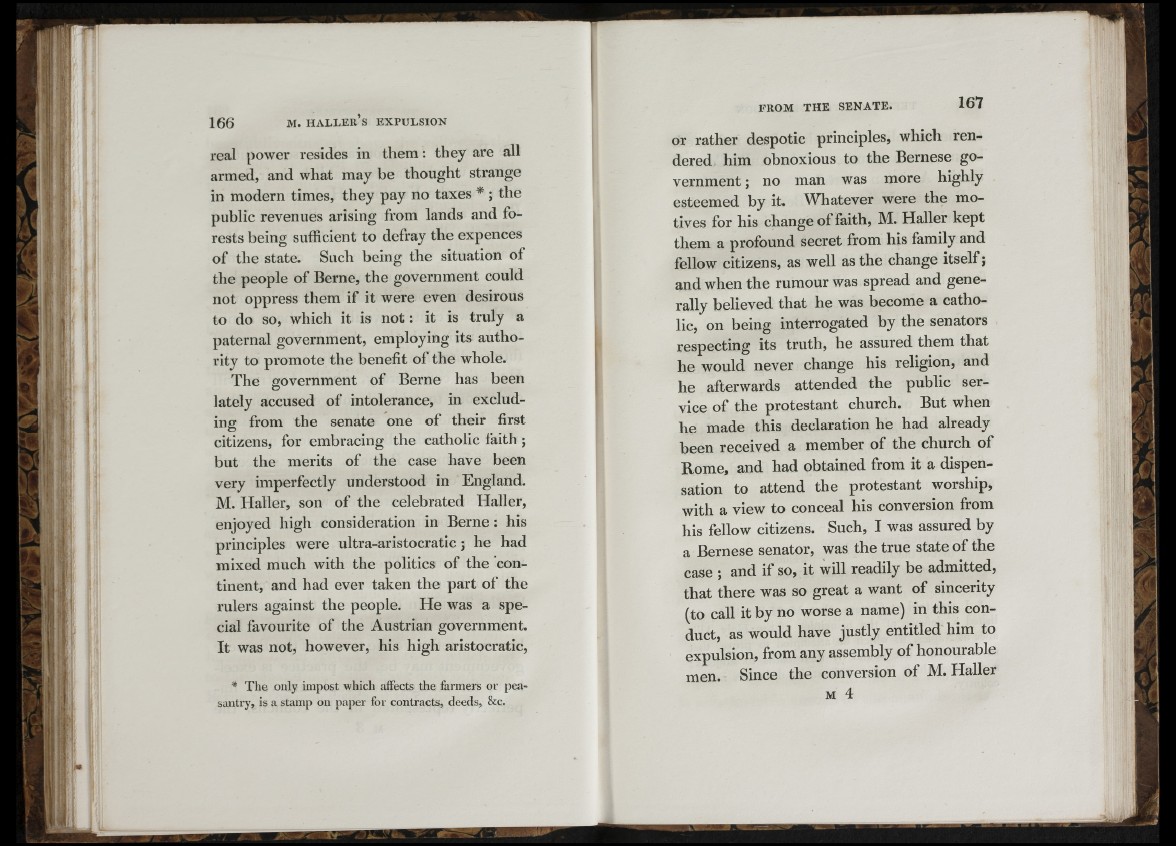
166 M. HALLER S EXPULSION
[i
l>3 i I; !■ li
, 1
.41 •-
real power resides in th em : they are all
armed, and what may be thought strange
in modern times, they pay no taxes * ; the
public revenues arising from lands and forests
being sufficient to defray the expences
of the state. Such being the situation of
the people of Berne, the government could
not oppress them if it were even desirous
to do so, which it is n o t : it is truly a
paternal government, employing its authority
to promote the benefit of the whole.
The Ogovernment of Berne has been
lately accused of intolerance, in excluding
from the senate one o f their first
citizens, for embracing the catholic faith ;
but the merits of the case have been
very imperfectly understood in England.
M. Haller, son of the celebrated Haller,
enjoyed high consideration in Berne : his
principles were ultra-aristocratic; he had
mixed much with the politics of the continent,
and had ever taken the part of the
rulers against the people. He was a special
favourite of the Austrian government.
I t was not, however, his high aristocratic,
* The only impost which affects the farmers or peasantry,
is a stamp on paper for contracts, deeds, &c.
or rather despotic principles, which rendered
him obnoxious to the Bernese government
; no man was more highly
esteemed by it. Whatever were the motives
for his change o f faith, M. Haller kept
them a profound secret from his family and
fellow citizens, as well as the change itself;
and when the rumour was spread and generally
believed that he was become a catholic,
on being interrogated by the senators
respecting its truth, he assured them that
he would never change his religion, and
he afterwards attended the public service
of the protestant church. But when
he made this declaration he had already
been received a member of the church of
Rome, and had obtained from it a dispensation
to attend the protestant worship,
with a view to conceal his conversion from
his fellow citizens. Such, I was assured by
a Bernese senator, was the true state o f the
case and if so, it will readily be admitted,
that there was so great a want o f sincerity
(to call it by no worse a name) in this conduct,
as would have justly entitled him to
expulsion, from any assembly of honourable
men. Since the conversion of M. Haller
M 4
r